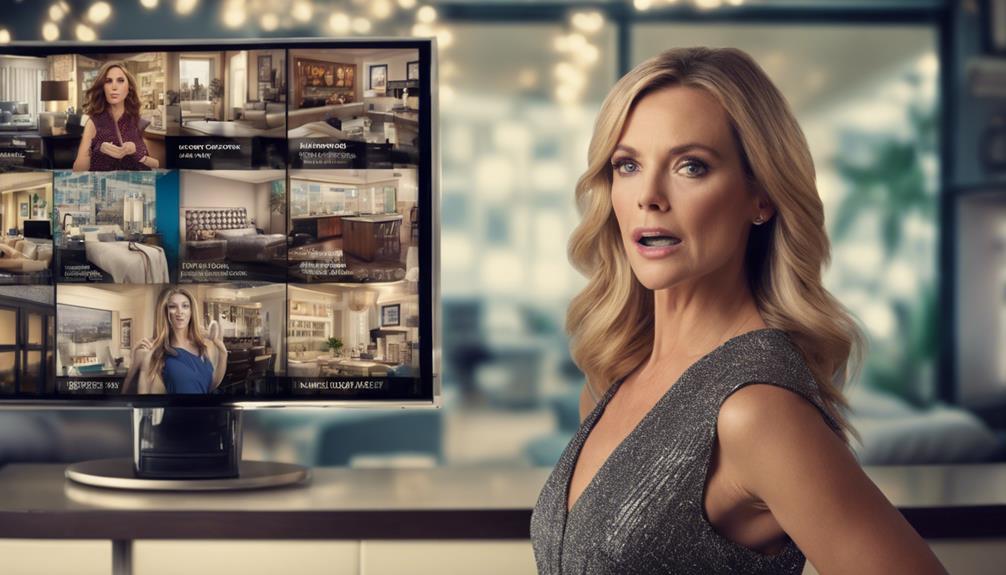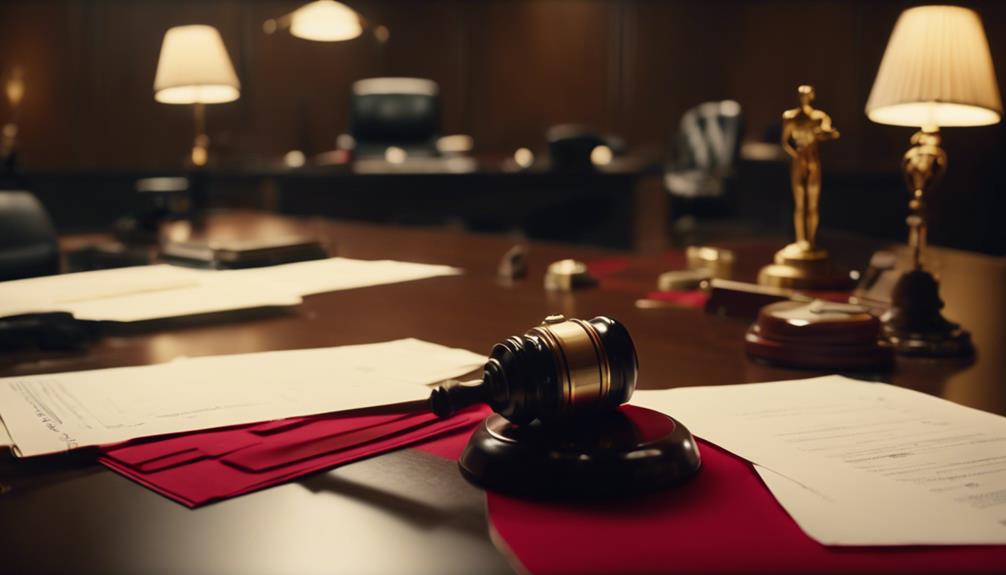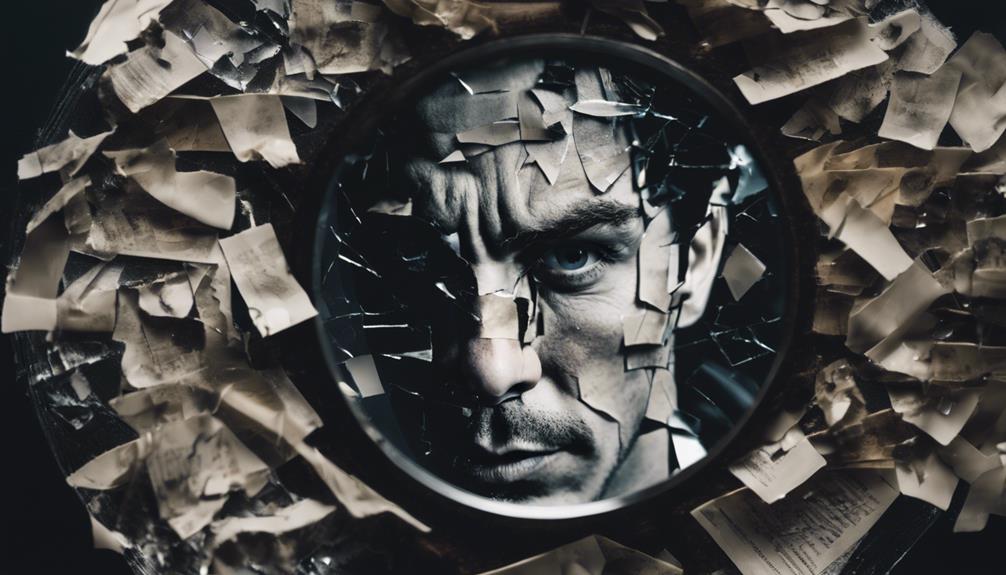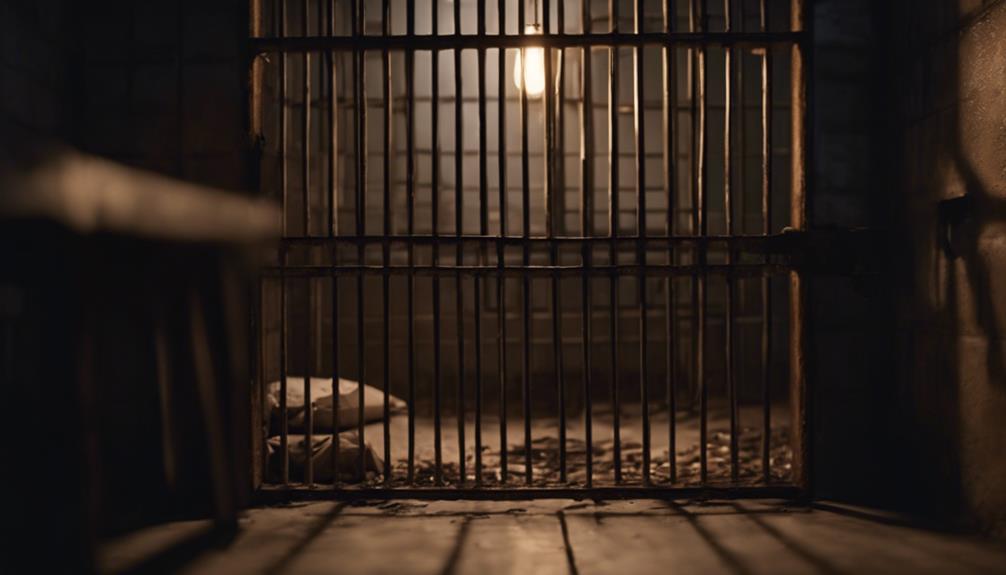In the spotlight of the entertainment industry, high-profile copyright cases have shed light on the dark reality of plagiarism. Iconic songs and rhythms are stolen, and creative rights are fought over in court. Ed Sheeran, Marvin Gaye Estate, and Led Zeppelin are just a few examples of artists who have faced copyright lawsuits. With the importance of protecting intellectual property in the music industry, these cases serve as a reminder of the consequences of copyright infringement. As the entertainment industry continues to navigate the complexities of copyright law, one thing is clear: the line between inspiration and plagiarism is thin, and artists must be vigilant in safeguarding their creative rights.
Key Takeaways
• High-profile copyright cases in entertainment highlight the importance of protecting intellectual property in the music industry.
• Famous lawsuits involving Led Zeppelin, Robin Thicke, and Coldplay emphasize the need to acknowledge past artists and respect intellectual property.
• Settlements and credit acknowledgments in cases like 'Bitter Sweet Symphony' and 'Creep' demonstrate the complexity of copyright law and giving credit where due.
• Artists like Ed Sheeran face lawsuits over alleged copyright infringement, emphasizing the need to protect creative freedom and understand plagiarism.
• Sampling in music production requires clearance and legal understanding to avoid costly copyright disputes and ensure creative expression.
Music's Most Notorious Lawsuits
Music's Most Notorious Lawsuits have made headlines over the years, often pitting legendary artists against each other in high-stakes battles over intellectual property. One such case involved Ed Sheeran, who faced a copyright lawsuit over similarities between his song 'Thinking Out Loud' and Marvin Gaye's classic hit. Sheeran ultimately settled the lawsuit out of court.
The Marvin Gaye Estate has been involved in several high-profile lawsuits, including the notable case against Robin Thicke and Pharrell Williams over their song 'Blurred Lines,' which resulted in a $5 million damages award. Led Zeppelin has also faced multiple plagiarism accusations, including claims that they stole the instrumental for 'Stairway to Heaven' from Spirit's song 'Taurus.'
These lawsuits highlight the importance of protecting intellectual property in the music industry, where the line between inspiration and theft can be blurry. As the music industry continues to evolve, it's likely that we'll see more high-profile lawsuits over copyright infringement.
Famous Cases of Song Theft

Famous cases of song theft have shaken the music industry, exposing stolen melodies and reused rhythms without credit. From Led Zeppelin's 'Stairway to Heaven' to Robin Thicke and Pharrell Williams' 'Blurred Lines', high-profile artists have faced allegations of plagiarism, sparking heated debates about originality and creativity.
As the music world grapples with these issues, it's essential to examine the most notorious cases of song theft, separating fact from fiction.
Stolen Melodies Exposed"
When it comes to songwriting, the line between inspiration and theft is often blurred, and some of the most iconic songs in history have been at the center of high-profile copyright disputes. These cases often involve stolen melodies, sparking heated debates about creativity and ownership.
| Song/Artist | Copyright Case |
|---|---|
| 'Viva la Vida' by Coldplay | Joe Satriani sued for similarities in melody |
| 'Crescent City Blues' by Johnny Cash | Gordon Jenkins accused Cash of plagiarism |
| 'Bitter Sweet Symphony' by The Verve | Rolling Stones received songwriting credits and royalties |
| 'Creep' by Radiohead | Lana Del Rey settled copyright dispute over similarities |
| 'Whole Lotta Love' by Led Zeppelin | Willie Dixon's estate sued, resulting in settlement and credit |
High-profile copyright cases like these highlight the complexity of copyright law and the importance of giving credit where credit is due. As music continues to evolve, it is crucial to acknowledge the influence of past artists and respect the intellectual property of others.
Rhythms Reused Without Credit
Beyond the blurred lines of inspiration and theft, some of the most iconic songs in history have been embroiled in high-stakes copyright disputes over reused rhythms without proper credit.
One notable case involves The Verve, who were sued for $1.7 million in royalties due to the unauthorized use of a Rolling Stones sample in their song.
Another high-profile copyright case involves Vanilla Ice, who claimed to have paid $4 million for publishing rights after being accused of sampling Queen and David Bowie's 'Under Pressure.'
Radiohead famously demanded 100% of publishing rights for their song 'Creep' due to similarities with a song by Albert Hammond and Mike Hazlewood.
In a more recent case, Tom Petty and Jeff Lynne received songwriting credit for Sam Smith's 'Stay with Me' following a settlement over similarities to Petty's song.
These cases highlight the importance of proper credit and compensation for reused rhythms, ensuring that artists receive the recognition they deserve.
When Artists Clash in Court
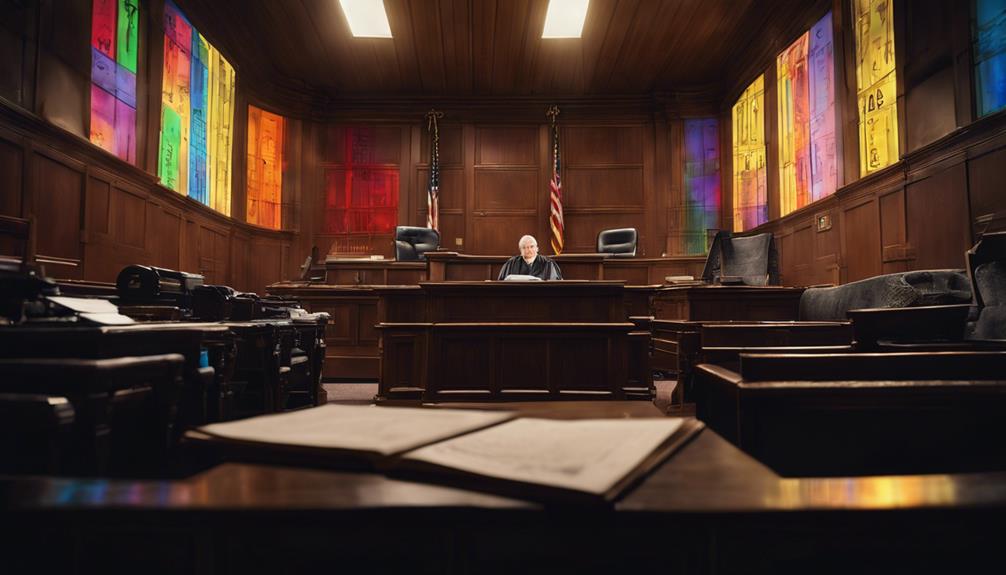
When artists clash in court, creative rights disputes and music ownership battles often take center stage. These high-stakes conflicts can have far-reaching consequences for artists, producers, and the music industry as a whole.
As seen in cases like Ed Sheeran's 'Shape of You' lawsuit, the outcomes can have a lasting impact on the way artists approach music creation and defend their original work.
Creative Rights Disputes
Five high-profile cases of creative rights disputes have made headlines in the music industry, with renowned artists clashing in court over copyright infringement. These legal battles highlight the importance of safeguarding creative ownership and the consequences of infringement.
Some notable examples include:
- Joe Satriani's lawsuit against Coldplay for allegedly copying his song 'If I Could Fly' in their hit 'Viva la Vida.'
- The settlement between Gordon Jenkins' estate and Johnny Cash over similarities in 'Folsom Prison Blues.'
- The Rolling Stones' legal battle with The Verve over 'Bitter Sweet Symphony.'
- Radiohead's dispute with Lana Del Rey over similarities in their songs.
These copyright infringement cases demonstrate the need for artists to respect the intellectual property of others. In the music industry, legal battles can have a significant impact on an artist's reputation and career. It's essential for creatives to prioritize originality and make sure they've the necessary permissions to avoid costly legal battles.
Music Ownership Battles
Artists' legal battles over music ownership have led to some surprising settlements, with high-profile cases often hinging on the nuances of copyright law.
In one notable case, Joe Satriani and Coldplay settled out of court over alleged similarities in their music, highlighting the complexity of copyright infringement claims. The Rolling Stones and The Verve also reached a settlement regarding copyright infringement, demonstrating the importance of protecting intellectual property rights.
Radiohead and Lana Del Rey resolved their legal dispute over song similarities, underscoring the need for artists to respect each other's creative work. Other notable cases include Willie Dixon and Led Zeppelin's settlement over claims of song plagiarism, as well as Queen, David Bowie, and Vanilla Ice's out-of-court agreement over sampled music.
These cases illustrate the importance of understanding copyright law in the music industry, where infringement can have significant financial and reputational consequences. By respecting the intellectual property rights of others, artists can avoid costly legal battles and maintain the integrity of their creative work.
The Price of Creative Freedom
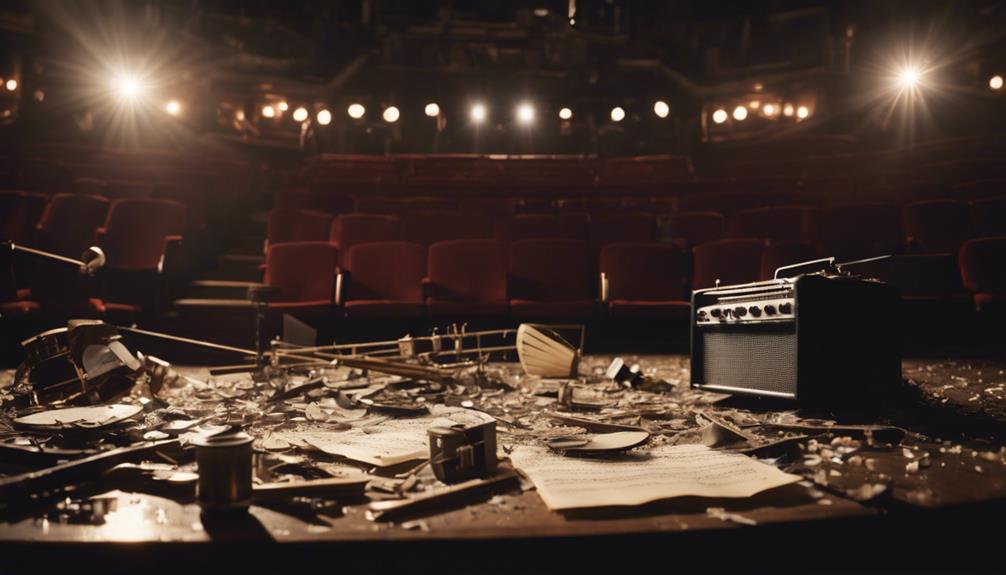
One essential aspect of the price of creative freedom is the need for artists to constantly navigate the fine line between inspiration and infringement. This delicate balance is vital in the entertainment industry, where high-profile copyright cases have highlighted the importance of respecting intellectual property rights.
In the music industry, for instance, artists like Ed Sheeran have faced allegations of song theft, showcasing the challenges of creating original music. The finite number of notes and chords in music can lead to unintentional similarities, sparking debates on plagiarism.
To fully understand the price of creative freedom, one must consider the following key aspects:
- Respecting copyright laws: Artists must be aware of existing works and ensure their creations don't infringe on others' intellectual property.
- Navigating unintentional similarities: Artists should be mindful of the finite number of notes and chords, taking steps to ensure their work is original.
- Fostering artistic expression: A balance must be struck between protecting original works and allowing for creative freedom.
- Understanding the complexities of copyright infringement: Artists must be educated on the laws and regulations surrounding intellectual property to avoid unintentional infringement.
High-Profile Battles Over IP
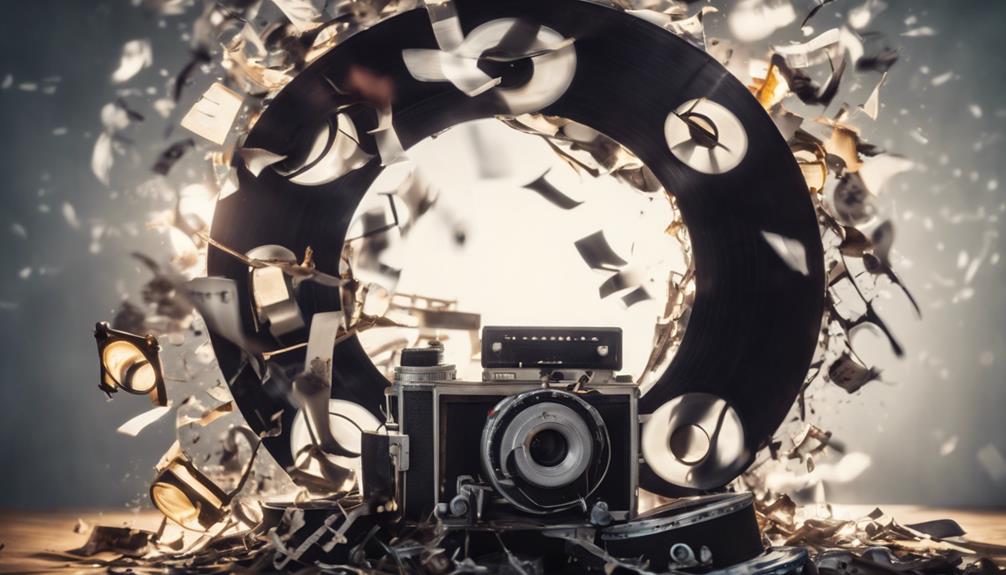
High-profile copyright cases like Ed Sheeran's lawsuit over 'Thinking Out Loud' have brought attention to the challenges of proving originality in the music industry. The lawsuit involved allegations of song theft, with expert witnesses called to testify in the trial. Ed Sheeran expressed frustration over accusations of plagiarism, defending his originality in creating music.
Despite facing the lawsuit, Ed Sheeran emerged victorious as the jury found he independently created the song in question. This high-profile battle over intellectual property highlights the issue of baseless copyright claims in the music industry and the challenges artists face in proving originality. The case emphasizes the importance of protecting creative freedom while ensuring that artists are held accountable for their work.
As Ed Sheeran's case demonstrates, the line between inspiration and plagiarism can be blurry, and it's essential to have a fair and thorough process for resolving disputes.
Sampling in the Spotlight

Sampling has become an integral part of music production, with many artists incorporating snippets of existing tracks into their own compositions to create unique sounds and pay homage to their influences. This practice, known as sampling, has been widely adopted in the music industry, but it can also lead to legal issues if not done properly.
Sampling involves taking a portion of a sound recording and reusing it in a new composition. While it can enhance the music and create a unique sound, it can also lead to copyright infringement if done without proper permission or clearance from the original copyright holder.
Here are some key considerations for artists looking to sample:
- Clearance is vital: Obtain permission from the original copyright holder to avoid legal battles.
- Understand the laws: Familiarize yourself with copyright laws and regulations to ensure just compensation for the original creators.
- Sampling can be costly: Unauthorized sampling can lead to legal battles and hefty fines.
- Creative alternatives exist: Consider creating original sounds or collaborating with other artists to avoid sampling altogether.
Paying the Price for Inspiration
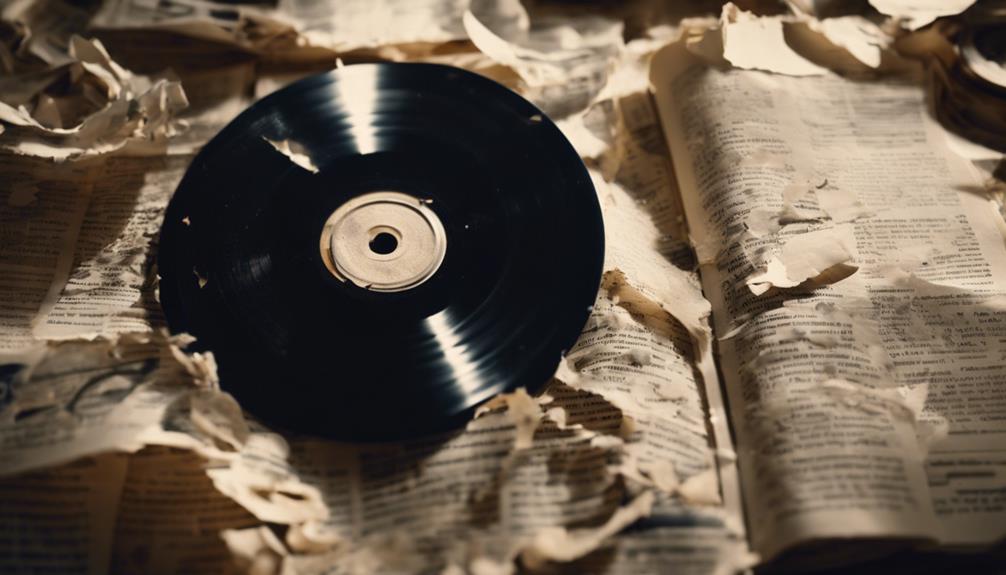
Inspired by the sounds and styles of their predecessors, many musicians have faced accusations of copyright infringement, with Ed Sheeran being a notable example. Sheeran has been at the center of several high-profile copyright cases, where he has had to defend his originality.
| Song | Copyright Case |
|---|---|
| Thinking Out Loud | Won lawsuit, emphasizing commonality of musical chords |
| Shape of You | Successfully defended in 2022 lawsuit |
Sheeran has been vocal about the frustration of dealing with baseless copyright claims in the music industry. During one of his trials, he even missed his grandmother's funeral, but ultimately won as the jury found he created the song independently. Expert witnesses were called out in his copyright case, where he expressed frustration over accusations of song theft. Despite the challenges, Sheeran has consistently defended his work, emphasizing the importance of originality in music.
The Thin Line Between Tribute
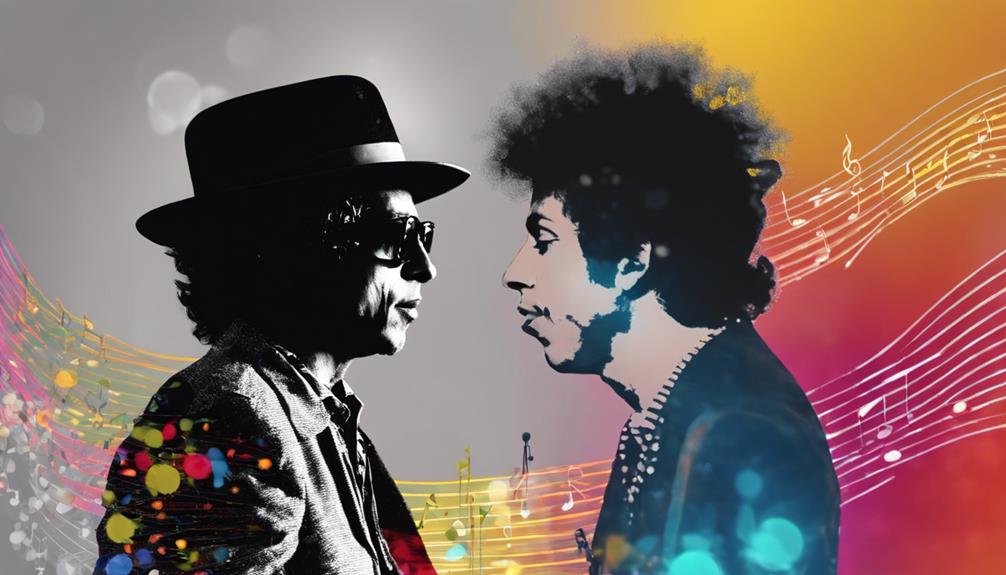
As the music industry grapples with the blurred lines between inspiration and plagiarism, the pivotal question of tribute versus theft comes to the forefront, prompting artists to carefully consider the fine line between paying homage and committing copyright infringement.
Tribute songs often walk a fine line between homage and plagiarism. Artists must carefully navigate the balance between inspiration and originality when creating tribute songs. To avoid copyright infringement, artists should:
- Confirm their work is transformative, adding a unique twist to the original song.
- Secure permission from the original artist or copyright holder.
- Avoid mimicking distinctive elements, such as melodies or lyrics, without permission.
- Understand that even unintentional similarities can lead to legal disputes.
In the music industry, understanding the difference between tribute and plagiarism is essential to avoid copyright infringement cases. Artists must be mindful of the fine line between paying homage and committing copyright infringement, as legal disputes can arise if tribute songs are deemed too similar to the original works.
Protecting Originality in Art

Original artists and creators rely on copyright protection to safeguard their unique visions, ensuring that their innovative ideas aren't diluted or stolen by others. Protecting originality in art is vital to avoid legal disputes and maintain creative integrity. High-profile copyright cases in entertainment highlight the importance of safeguarding artistic integrity. Artists must be cautious to guarantee their work is original and doesn't infringe on existing copyrights. The entertainment industry relies on copyright protection to preserve the uniqueness of artistic creations.
Court cases involving copyright claims have set precedents for protecting originality. For instance, high-profile cases have led to significant changes in copyright laws, emphasizing the need for artists to be vigilant about protecting their work. By understanding the importance of copyright protection, artists can focus on creating innovative art without worrying about their ideas being stolen. Protecting originality in art is essential for maintaining the integrity of the entertainment industry.
Frequently Asked Questions
What Is an Example of Copyright Infringement in the Entertainment Industry?
One example of copyright infringement in the entertainment industry is the case involving Katy Perry's song 'Dark Horse.' Perry was accused of copying elements from rapper Marcus Gray's song 'Joyful Noise.'
The jury ultimately ruled in favor of Gray, awarding him damages.
This case highlights the importance of originality in the music industry, emphasizing that artists must guarantee their work is truly their own.
What Is an Example of Copyright Plagiarism?
Sheeran's copyright case over 'Thinking Out Loud' exemplifies copyright plagiarism. He was accused of copying Marvin Gaye's 'Let's Get It On' melody.
The court ruled in favor of Sheeran, but the case highlights the blurred lines between inspiration and plagiarism. This high-profile case demonstrates the importance of originality in creative works, emphasizing that even unintentional similarities can lead to legal repercussions.
What Are 5 Examples of Copyright Infringement?
Five notable examples of copyright infringement cases involve famous musicians.
Robin Thicke and Pharrell Williams were sued over 'Blurred Lines' for its similarity to Marvin Gaye's 'Got to Give It Up.'
George Harrison faced allegations for 'My Sweet Lord' due to its resemblance to the Chiffons' 'He's So Fine.'
Katy Perry was involved in a lawsuit over 'Dark Horse' with Marcus Gray.
Led Zeppelin was accused of copying Spirit's instrumental for 'Stairway to Heaven.'
Ronald Selle filed a lawsuit against the Bee Gees for similarities in 'How Deep Is Your Love.'
What Song Did Ed Sheeran Get Accused of Copyright Infringement?
Like a storm cloud looming over the music industry, accusations of copyright infringement rained down on Ed Sheeran. He was accused of borrowing from Marvin Gaye's 'Let's Get It On' for his hit song 'Thinking Out Loud.'
The plagiarism lawsuit alleged similarities between the two songs, but Sheeran defended himself, emphasizing the commonality of musical elements. In the end, the jury found in his favor, concluding that he'd independently created the song.
Conclusion
To sum up, high-profile copyright cases in entertainment serve as a reminder of the importance of protecting intellectual property.
For instance, in the landmark case of 'Blurred Lines,' Robin Thicke and Pharrell Williams were ordered to pay $7.4 million to Marvin Gaye's estate for copyright infringement.
This ruling highlights the necessity for artists to guarantee originality in their work and respect the creative rights of others.
By doing so, we can promote a culture of innovation and artistic integrity.



